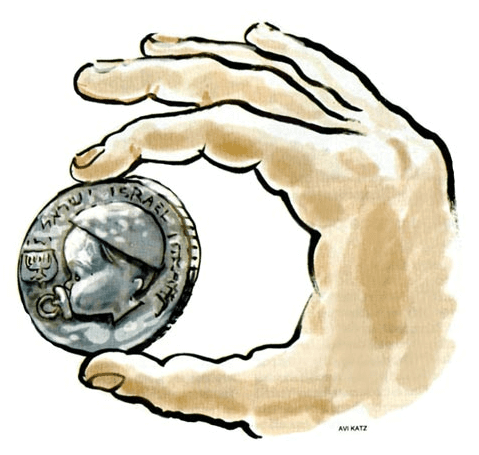Bruce Beck had to sing in order to get a world exclusive with Israel’s only Olympic Gold medalist.
Every Jewish man remembers his bar mitzvah. Some even remember parts of their haftarah. Rarely does this ‘feat’ get them anywhere in life. Not the case for New York’s NBC TV sports anchor and reporter, Bruce Beck. Bruce grew up in Livingston, New Jersey, 25 miles southwest of Manhattan. Following a traditional, pretty much unremarkable, bar mitzvah in 1969, he attended Ithaca College in upstate New York and became a sports broadcaster. Beck has been the weekend sports anchor for News 4 New York for the past 11 years. As part of Beck’s “dream job,” he has covered Super Bowl XLII, the World Series, the NBA finals, the Stanley Cup Finals, The US Open Tennis Championship, the US Open Golf Championship, the NCAA Final Four and the Kentucky Derby. Nothing, however, he maintains, compares to his’s coverage of the 2004 Olympics in Athens, Greece, when windsurfer Gal Friedman became the first Israeli to ever win an Olympic gold medal. “I was down at the windsurfing venue trying to get an interview,” reports Beck. “The way it works is that you wait in the mixed zone, a little control area behind fences, with all of the international reporters.”
Beck was waiting patiently when all reporters were told that Gal Friedman would not be coming through the mixed zone. After the 1972 Munich massacre, Israeli athletes simply do not grant en-masse interviews. But Beck was determined. He called Jerusalem and got a hold of Israel’s press liaison in an attempt to find out where in Athens the Israeli delegation was staying. He was then given the name of the local Israeli press secretary in Greece. After a lot of schmoozing, and his revelation of the fact that he was Jewish, the pleasant, persistent reporter was given the name of the hotel. When Beck arrived at the location, the prospects of meeting Friedman seemed slim. Again, all the reporters were waiting behind a fence. “I just needed to get in to interview Friedman. What could I do? I couldn’t speak or read Hebrew very well. I wasn’t a very good Hebrew school student. But I have a very good memory. I am a reporter. And to this day, I remembered my entire haftarah by heart. “So I started singing my haftarah, the special one for Machar Chodesh – the lovely story of David and Jonathan – for the Israeli press secretary. He was so moved that he said, ‘Bruce, come in, we want you to talk to Gal.'” And Beck got the exclusive – he was the only reporter in the world granted access to Gal Friedman. “Gal knew the whole story. He knew that I sang for the press secretary. He laughed. We talked about Munich, the fight for survival of Jews in their homeland, what it would be like to hear Hatikvah that night as he received his gold medal, etc.”
Beck looks back fondly on the story as a rare moment when a reporter’s religious background actually opened an important door, and when the reporter became part of his own story. “Journalists from all around the world wanted to know why Gal Friedman was such a big story, and how I was picked to interview him.”
“Here I was in Athens, Greece – 4,500 miles from home, in the cradle of Western Civilization – never prouder to be an American – never prouder to be a Jew.”






